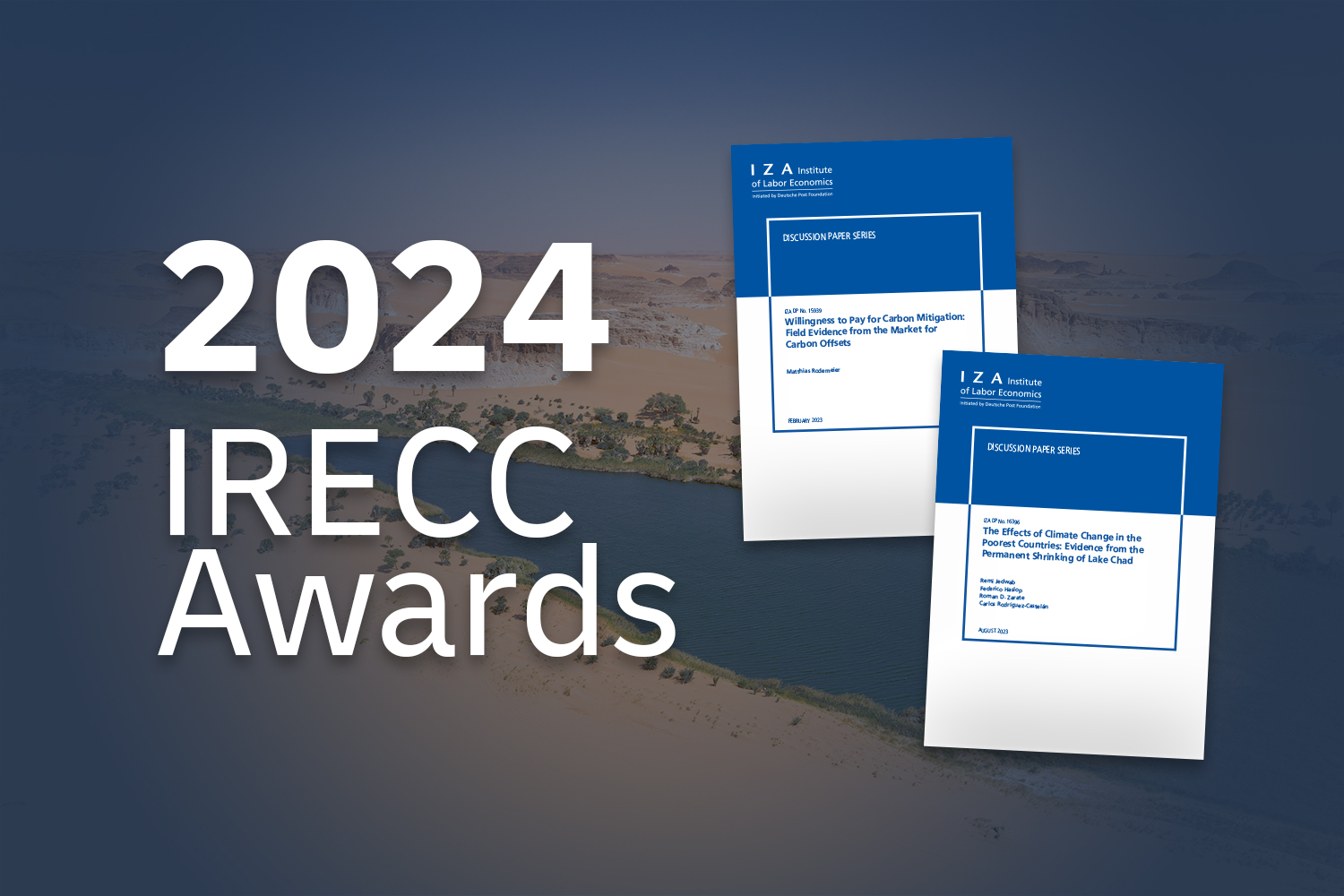To foster research into the nature and implications of climate change, IZA gives an award for “Innovative Research in the Economics of Climate Change” (IRECC) for the two best topical IZA Discussion Papers of the previous year. Worth 10,000 euros, the IRECC Award recognizes important new insights into the broader, often underestimated consequences of climate change and the effects of environmental policies on society and the labor market.
Real-world willingness to pay for carbon offsets
One of the two papers selected for the 2024 IRECC Award is “Willingness to Pay for Carbon Mitigation: Field Evidence from the Market for Carbon Offsets” (IZA DP No. 15939). In this study, Matthias Rodemeier sheds light on a crucial question: how much are people truly willing to pay to protect the environment? He does so by analyzing real-world behavior rather than hypothetical surveys.
Rodemeier examines the choices of over 250,000 German delivery service customers that were offered voluntary carbon offsets. Interestingly, consumer demand for offsets increased when prices were subsidized but not when the compensated amount of carbon was matched by the delivery service. However, transparency was key. When explicitly informed that the delivery service is matching the offsetting of emissions on its own costs, consumer behavior shifted dramatically. A salient 300% match of emissions boosted offset demand by 22%.
Thus, a simple intervention that advertises the firm’s participation in the offsetting costs makes subjects sensitive to the impact of carbon mitigation. The implied willingness to pay (WTP) for carbon mitigation increased from practically zero to €16 per tonne of CO2 (tCO2).
Two additional surveys reveal that the increase in WTP due to the firm’s contribution is mostly driven by fairness preferences and not by a higher intrinsic valuation for carbon mitigation.
This research further exposes a significant gap between what people say they would pay in surveys (hypothetical WTP) and what they actually do (revealed preferences). In this case, hypothetical WTP averaged €238/tCO2 – a staggering 1,338% higher than revealed preferences. This highlights the importance of using real-world behavior to understand true environmental values.
Long-term economic and social effects of climate change
The second award-winning paper, “The Effects of Climate Change in the Poorest Countries: Evidence from the Permanent Shrinking of Lake Chad” (IZA DP No. 16396) by Remi Jedwab, Federico Haslop, Roman Zarate, and Carlos Rodriguez Castelan, tackles a neglected aspect of climate change: its slow, gradual effects on societies. The research uses the dramatic decline of Lake Chad – once the world’s 11th largest – as a case study.
Lake Chad shrunk by 90% between 1963 and 1990 due to external factors. While water supply decreased, land supply increased, which could in theory generate both negative and positive economic effects. The researchers innovatively compiled population data for nearby regions across four African nations (Cameroon, Chad, Nigeria, and Niger) spanning from the 1940s to the 2010s.
Their findings are concerning. Population growth near the lake slowed significantly only after the shrinkage began. This implies limited ability for communities to adapt. Furthermore, the negative impacts on livelihoods – fishing, farming, and herding – outweighed any potential benefits from the newly exposed land.
The study employs a spatial model to estimate welfare losses, considering potential adaptation. The results show an overall decline of 6%, with Chad experiencing the most significant impact (9%). The model further explores the potential effects of various policies – migration, land use, trade, infrastructure, and urbanization – to understand how these factors might influence the situation.
The limited effectiveness of adaptation strategies in this case underscores the vulnerability of the poorest countries to climate change. These findings have broad implications for designing policies to support these nations in facing the challenges of a changing climate.
+++
The IRECC winners “represent the best of modern applied-economics research,” according to the award committee made up of Susana Ferreira (University of Georgia) and Andrew Oswald (IZA and University of Warwick).
